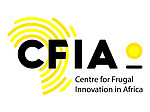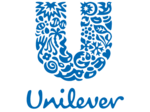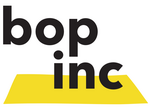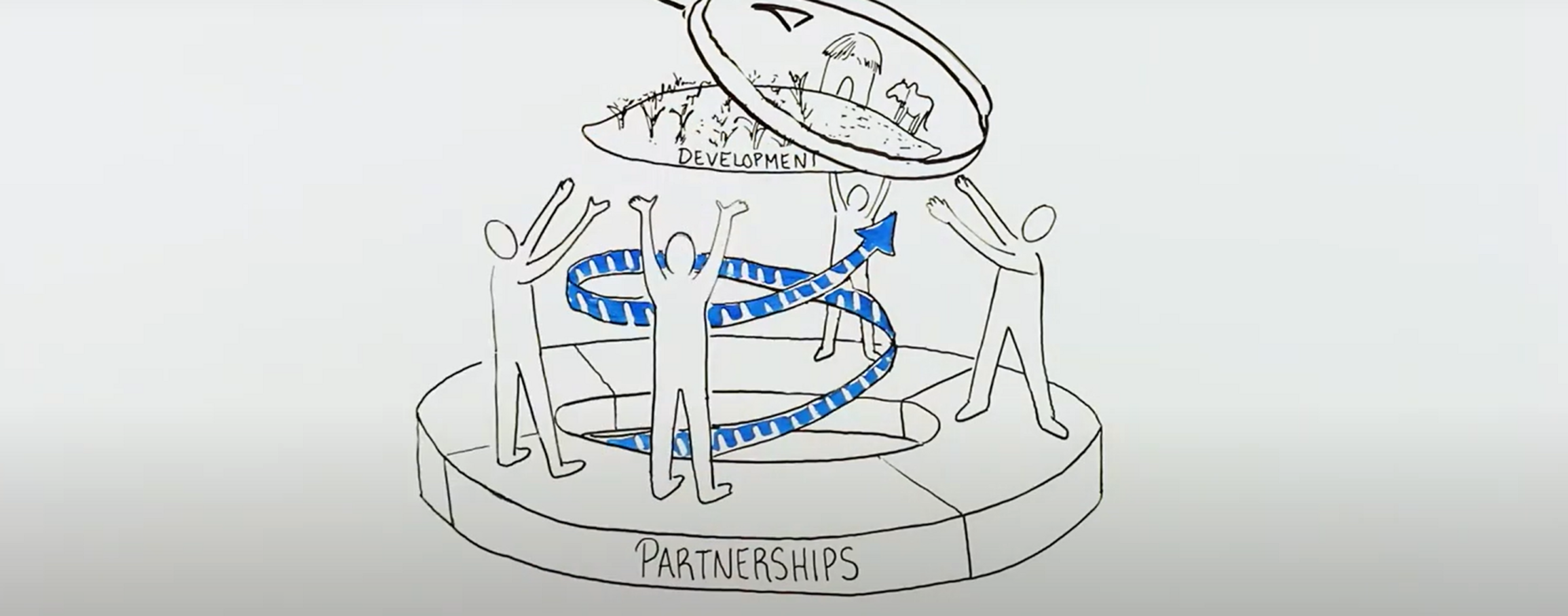2SCALE: Toward Sustainable Clusters in Agribusiness through Learning in Entrepreneurship

PrC is a strategic partner of 2SCALE - an incubator program funded by the Dutch Ministry of Foreign Affairs, which manages a portfolio of public-private partnerships (PPPs) for inclusive business in agri-food sectors. 2SCALE offers a range of support services to its business champions (SMEs and farmer groups) and partners, enabling them to produce, transform and supply quality food products. These products go to local and regional markets, including to base of the pyramid consumers. 2SCALE is active in Burkina Faso, Ethiopia, Ghana, Ivory Coast, Kenya, Mali, Nigeria, Niger, and South Sudan.
Within the 2SCALE program, PrC provides strategic support through action-research and knowledge brokering. Moreover, the PrC leads the design and implementation of the M&E system.
In this project PrC works with the concept of impact pathways, which helps to think critically about the desired societal change and illustrates how complex process of change will unfold over time. These impact pathways can help to manage and steer an intervention.
In the report ‘Impact Pathways: monitoring and evaluating partnerships for sustainable development’ we clarify the impact pathways approach, discuss the implications of the approach for evaluation commissioners, and illustrate the approach with two examples.
Contact
Dr Sietze Vellema
Associate Professor


A Process Tracing approach to study partnerships and sustainable development
The Partnerships Resource Centre (PrC) has recently started working with process tracing, a rigorous within-case methodology to study partnerships for sustainable development. This is part of an ongoing search for new research approaches to unpack complex partnering processes for sustainable development.
Public-private partnerships continue to play a crucial role in pursuing sustainable development. Simultaneously, questions around the functioning of partnerships persist. How do we identify a partnership’s contribution to impact? How do partnership dynamics translate into intended and unintended consequences? Under which conditions do partnerships contribute to sustainable development? These and other questions reflect the ongoing struggle in partnership practice and research around what works, in which arrangements, and under what circumstances.
In a search for answers to these questions, it is necessary to expand the toolbox of research methodologies to study partnerships for sustainable development. Process tracing is among the methodologies and approaches that offers significant potential for addressing some of the central questions in partnership studies. It is a rigorous qualitative method to assess how partnership interventions lead to impact.
The PrC has developed a guidebook to provide stepwise guidance to those who wish to use process tracing in studying partnerships for development.
In collaboration with the Ministry of Foreign Affairs, PrC has used process tracing to explore the contribution of two modalities of private-sector engagement to systemic change. You can read the policy brief here.
Contact

Added value of Solidaridad's Partnerships

Why this project?
Solidaridad and the PrC set up an action research project to enhance Solidaridad’s strategic partnership approach and to get a better grip of the added value of strategic partnerships. This entails getting a better understanding of the success factors, the set-up and the management of effective partnerships.
The action research project focuses on six strategic partnerships of Solidaridad which are in different stages of implementation. Solidaridad’s partners Henkel, East-West Seed, RWE, Stahl, Syngenta, and FMO will participate. This selection is based on the following criteria: (1) the partners come from different (business) sectors, (2) they have different roles in Solidaridad's intervention strategy (varying from agent, enabler to implementer) and (3) the partnerships are at different stages of implementation.
What will be the output of this project?
The project has two ambitions: first, understanding the added value of Solidaridad’s strategic partnerships and help to improve the implementation of an effective partnership portfolio for Solidaridad. Therefore, the focus will not be on a more traditional way of impact measurement – through Monitoring and Evaluation techniques that are aimed at investigating the impact of specific projects on end beneficiaries – but on the meaning of the partnerships for the companies involved and for Solidaridad. Second, the action research project aims to come up with suggestions for improvement of the strategic partnership approach (including process design and tools) of Solidaridad.
Research approach
The action research approach is based on a learning – reflecting cycle and includes three successive phases:
1. Taking stock: we will make an inventory of the state of affairs, based on analysis of partnership documents and perspectives of partnership managers of Solidaridad and partners;
2. Reflection & learning: in a facilitated sense making meeting with Solidaridad’s partnership managers we will reflect on the chosen strategy and jointly formulate learning questions. Anticipated outcome is insight into what needs to be improved or changed.
3. Improve Solidaridad’s partnership approach: in a co-created learning session we identify implications for Solidaridad’s strategic partnership approach and Solidaridad’s partnership portfolio.
Contact


Better Business Scan / Sustainable Business Models

In the context of the NWO – Groene Zaak program ‘Sustainable Business Models’, the PrC, together with several other organizations, executes an action research project called: ‘Managing the transition to sustainable business models: the role of leadership and measuring shared value creation'.
The main aim of the research project has been to consider the transition process that enhances organisations – either as implementers themselves or as advisors – to create shared value. One of the initial findings was that companies need and want to become more sustainable. There are, however, often conflicting goals and societal expectations. This often creates an implementation gap: to translate the business case for sustainability into a sustainable business model. Therefore, together with DuurzaamBedrijfsleven, we have developed and validated the Better Business Scan. This online tool provides entrepreneurs – in less than 15 minutes - with direct insights into their sustainability ambition and position, as well as concrete advice on how to improve their strategy. Within the first year, more than 1000 entrepreneurs, of more than 500 companies, in the Netherlands, have used the tool. After this initial phase, we are currently further developing the Better Business Scan. This includes, among others, providing more in-depth advice based on the aggregated results of multiple employees within a company, giving workshops, and incorporating specific themes such as the Sustainable Development Goals in the Better Business Scan.
The results of the Better Business Scan are also used for research purposes. The preliminary findings are published in a series of articles (Dutch only). This is the first:
Contact
Rob van Tulder
Professor of International Business-Society Management
Room T11-54


Centre for Frugal Innovation Africa

The Leiden-Delft-Erasmus (LDE) Centre for Frugal Innovation in Africa (CFIA) is an academic research centre focused on frugal innovation. CFIA investigates how frugal innovations and technologies contribute to poverty reduction, inclusive development and sustainable outcomes. The centre was founded in 2013 as one of the LDE strategic alliances. Through innovative and outstanding teaching and research, CFIA seeks to contribute towards understanding and solving the major and complex social issues of our time by connecting science and society focused on frugal innovation. CFIA works with the academic community, societal partners and government to form a basis for further academic and public-private partnerships. Currently CFIA focuses on projects within the water-energy-food nexus and sectors like health and ICT.
Considering the overlap in mission and vision of the two centres, PrC became one of the strategic partners of CFIA. More specifically, from March 2019 onwards the PrC hosts the CFIA domain agro-food. In this role the PrC works with CFIA to a) conduct academic research on subjects that are of interest to both centres; b) acquire further funding in this domain; c) develop and further strengthen a viable network.
Contact

Chains for Change in the Philippines - in collaboration with the University of the Philippines
In partnership with Unifrutti Tropical Philippines Inc. (UTPI) then owner of La Frutera plantation, Jollibee Group Foundation, the academic partners, PrC and UP carry out an action research project, whose prime aim is to understand the drivers of inclusive business models in the unique context of Mindanao. It will also promote the kind of collaborative learning between stakeholders and academic researchers that is critical in both the design of a common long-term vision, as well as the concrete steps that can be taken in the short and medium-term.
Three stakeholder workshops will be held in 2019, the first one being set on the 1st of March in Davao. The whole process, including the in-depth study of existing inclusive business practices, will be covered during this year. The field work will end in July 2019. One important phase of the action research project is the formation and training of the so-called ‘impact teams’ composed of stakeholders and researchers. The main outputs of this project are: a publication that will present the results, including the insights gained from the stakeholder engagements; and both project proposals to be submitted in July 2019 and October 2019, respectively.
Contact

Impacts of Multi-Stakeholder Partnerships


Collaborative action project
MSPs have become an important mechanism for working towards the Sustainable Development Goals (SDGs). Yet it is challenging to fully understand MSPs and to monitor and evaluate their added value. Therefore, Partnerships2030, the Platform for Multi-Stakeholder Partnerships for Implementing the 2030 Agenda, the Competence Centre Change Management (GIZ-FMB) and the PrC have started a joint action research project.
Objective
The objective of the action research project is to develop actionable knowledge on the added value of MSPs that can directly help MSPs to better monitor, enhance and communicate their added value. The focus will be on helping MSPs better understand and navigate their added value and integrate it in their monitoring and evaluation system in an effective and efficient way. Next to that, the research project will also consider how backbone organizations can support MSPs to maximize the added value.
Involved MSPs
The MSPs that will participate in the action research project, include:
- The German Extractive Industry Transparency Initiative (D-EITI)
- The Alliance for Integrity (AFIN)
- Welthungerhilfe/Land for Life
- WWF Germany/Philippines Yellow Tuna Fishery Improvement
- German Initiative on Sustainable Cocoa (Forum nachhaltiger Kakao)
- PREVENT Waste Alliance (PREVENT Abfall-Allianz)
- Germanwatch – for Global Equity and the Preservation of Livelihoods
- Action Medeor (German Medical Aid Organisation)
Iterative process
This is a collaborative action research project: a process in which MSPs systematically examine their own practice using the techniques of research, for the purpose of increasing learning of all participants. This form of research is an iterative, cyclical process of reflecting on practice, acting and intervening, reflecting, and taking further action.
This means that the research focus will gradually become sharper along the way. It is expected that adjustments or changes will be made during the process.
Reference Group
Because of the iterative nature of this project, systematic, periodic reflection moments will strengthen the research approach and deepen the knowledge to be developed. To ensure the scientific quality, a Reference group is installed. Members of this Reference Group are:
- Herman Brouwer, Senior Advisor Multi-Stakeholder Processes, Centre for Development Innovation, Wageningen University & Research, The Netherlands;
- Prof.dr. Dirk van Dierendonck, Department of Organisation and Personnel Management at Rotterdam School of Management, Erasmus University, The Netherlands;
- Dr. Leda Stott, Lecturer / Researcher, Innovation and Technology for Development Centre at Technical University of Madrid, Spain;
- Dr. Giel Ton, Research Fellow at the Institute of Development Studies and Director of the Centre for Development Impact, University of Sussex, UK;
- Prof.dr. Christine Wieck, Institute for Agricultural Policy and Markets, University of Hohenheim, Stuttgart, Germany.
Contact


Knowledge development Public-Private Partnerships
In the policy document ‘Investing in Future Prospects’ of the Dutch Minister of Foreign Trade and Development Cooperation, public-private partnerships play a crucial role. Key question is how effective and inclusive these innovative forms of collaboration are in realizing policy goals and implementation of the Sustainable Development Goals. Under which conditions do PPPs contribute? How do PPPs actually work? What is the added value of partnering? And what is the additionality of partnerships?
Funded by the Dutch Ministry of Foreign Affairs, PrC set up a research project to try to answer these questions. We conduct research into four topics:
- Facilitating internal learning around PPPs to enable policy makers to enlarge and to share their knowledge and experiences;
- Inventory of which partnerships and facilities with the private sector exist, including knowledge and learning needs and recommendations for future PPPs;
- Further elaboration of the concept of impact pathways for sustainable and inclusive partnerships, including its practical application;
- Policy support: participating in advice and steering committees, support of review and evaluation and facilitating innovative partnerships.
Contact

Learning on Bright Innovations with Unilever and BoP Inc in Bangladesh and Nigeria


With support from the Dutch Ministry of Foreign Affairs, Unilever and BoP Innovation Center (BoPInc) are able to continue their already existing collaboration in the project ‘Testing Innovations for Scaling Inclusive Distribution in Nigeria and Bangladesh’ (2019 to 2022).
The aim of the project is to improve access to essential personal and household products through inclusive distribution channels, which are foreseen to benefit BoP communities by: (1) providing them with improved access to basic nutritious food, sanitation and other products; (2) providing women in the community with income generating opportunities; and (3) contributing to the development of these regions by generating and testing innovations that are required to successfully scale rural distribution networks and sharing key learnings with the development and business communities.
To gain better understanding and enhance the developmental outcomes of the partnership, PrC facilitates a learning trajectory by conducting action research in and with the project. We work with the concept of impact pathways, which helps to think critically about the desired societal change and illustrates how complex processes of change will unfold over time. By explicitly theorizing and systematically monitoring, the learning trajectory aims to enhance the capacity of Unilever and BoPInc staff to monitor, assess and manage the generated change processes through their brokered local partnerships. PrC will publish the results from this action research trajectory to share lessons learned beyond the partnership to the wider public.
Contact

Learning with the Global Diplomacy Lab

In 2019, PrC joint the Global Diplomacy Lab (GDL) as knowledge partner to support the future strategy development of the GDL. In a joint action research project, we collected experiences of the leading partners, previous challenge holders that work(ed) with GDL and the GDL members to distill the power of GDL and identify what impact have been achieved.
Together with GDL’s Strategy Group, PrC’s Marieke de Wal and Stella Pfisterer, worked on developing the new strategy. It was an intense and fascinating process with GDL members who had different ideas, backgrounds, ways of working, favorite approaches, with a lot of commitment and high level of engagement. The process of strategy development was member driven.
Member driven is about members’ ownership. That is quite unique about GDL: members create, steer and implement. And it is about allowing members to find their own way and pace in working together towards innovative diplomacy. That is quite unique as well. It is about having trust in each other that the process is worthwhile and will deliver good results in the end.
GDL’s strategy document includes a vision on a new, innovative Diplomacy – Diplomacy 4.0 –, an impact statement, and a call to action. It also contains two stories. We told the story of how the strategy came about (see Annex B, from page 15 onwards) and we reflected on the collaboration between PrC and GDL (see Annex B, from page 18 onwards). These are stories about doing things differently, dealing with uncertainty and the balancing act it takes to create a community, to create a movement to change diplomacy.
*The GDL is a member-driven platform that considers cross-sector collaborations as crucial to explore new tools of communication on the basis of mutual trust and to re-formulate an agenda for collective action. Its foundation is a public-private partnership between the German Federal Foreign Office, the BMW Foundation Herbert Quandt, the Global Leadership Academy, the Stiftung Mercator and the Robert Bosch Stiftung.
Contact


Supporting to enhance and scale the partnership between Philips and AMREF Flying Doctors
Since 2013 Philips and AMREF have joined forces to improve primary health care in Africa. The partnership is at a crucial point where decisions have to be made about scaling and strategy. Therefore, Philips and AMREF, together with PrC[1], have set up a learning coalition that aims to support the decision-making on how to scale and enhance the partnership in the future. The focus of the learning coalition is broadly on the following questions: What is the current state of the partnership? What are key tensions and dilemmas the partnership faces? How could these be addressed? Under what conditions can the partnership become more effective in the future? And how can the future strategy be implemented, monitored and adapted if required?
The learning coalition applies an action research approach that focuses at the partnership between Philips and AMREF but also at project level. One key case study for the learning coalition will be the partnership for primary care in Makueni county (Kenia), currently funded by FMO and Philips foundation. Opportunities for scaling (e.g. the setup of a PPP) of this project are currently explored. In the first phase, the learning coalition focuses on the development of a Theory of Change for a transformative partnership taking into account tensions, dilemmas and trade-offs.
Our learning ambition is that the partnership partners will be better able to make decisions and deal with contradictions that are often inherent in partnerships. The insights will be translated in a partnering navigator that helps partners to steer and guide the partnership through monitoring and reflection towards impact.
[1] PrC documented the Community Life Centres approach of Philips to create inclusive health care innovation in 2017.
Contact
Rob van Tulder
Professor of International Business-Society Management
Room T11-54



